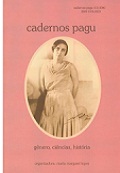Resumo
Resumo
Dá-se conta de uma mutação no imaginário utópico, a passagem do “mundo” para o “corpo”. Desde sempre a categoria de “mundo” serviu de garantia de uma transformação da experiência, segundo clivagens estéticas e cientificas, mais ou menos violentas. A crise do utopismo que o concentracionário e as guerras do século XX originaram, levaram à deslocação do impulso utópico do mundo para o “corpo”, que serve agora de “imagem geral” para a abordagem especulativa da experiência contemporânea, crescentemente requisitada pela técnica digital. Este processo coloca novos desafios ao pensar, que se procuram apreender nas suas grandes linhas.
Abstract
An account of a mutation in the utopic imaginary, the passage of the “world” to the “body” is given. Since always the category “world” was a guarantee of a transformation of the experience, according to aesthetic and scientific cleavages, more or less violent. The crisis of utopianism that the concentration experience and the wars of century XX have originated, has led to the displacement of the utopian impulse of the world for the “body”, that now serves of “general picture” for the speculative approach of the contemporary experience, increasingly requested by digital techniques. This process places new challenges to thinking that are examined to apprehend their major lines.
Referências
ARTAUD, Antonin. Para Acabar com O juízo de Deus. Lisboa, &etc.
ARTAUD, Antonin. Teatro da Crueldade. Lisboa, &etc, p.3.
BENJAMIN, Walter. Le Livre des Passages. Paris Capitale du XIX Siècle. Paris, Cerf, 1989, p.36 (trata-se do 1º. exposé).
BENJAMIN, Walter. O Narrador. In: Sobre Arte, Técncia, Linguagem e Política. Lisboa, Relógio d'Água, 1992, p.28.
DELEUZE, Gilles & GUATTARI, Félix. Qu'est-ce que la Philosophie. Paris, Minuit, p.106.
JAMESON, Frederic. The Seeds of Time. Columbia, Columbia University Press, 1994, nomeadamente o capítulo “Utopia, modernism and death”, pp.73-128.
LAIRD, Sally. Russian Bodies and Souls. In: www.prospectmagazine.co.uk/highlights/russian_bodies/.
MACPHERSON, Crawford B. The Political Theory of Possessive Individualism. 1Cambrigde, C. U.P., 1962.
MIRZOEFF, Nicholas. Bodyscape. Art, Modernity and the Ideal Figure. Londres, Routledge, 1995, p.1.
PODOROGA, Valery A. Machines of disorder. In: http://www.ljudmila.org/embassy/3b/sel13.htm.
POE, Edgar Allan. Contos Completos. II volume, Coimbra, Editorial “Saber”, 1944, pp.193-219. (Trad.: De Manuel Barbosa).
RHODE, Erwin (1876). Psique. La idea del alma y la inmortalidad entre los gregos. Ciudad de México, FCE, 3ed. 1994, p.10.
RORTY, Richard. Contingency, Irony, and Solidarity. Cambridge, Cambridge UP, 1989, p.XIV.
SIEBERS, Tobin, (org.) Heterotopia. Postmodern Utopia and the Body Politic. Institute for the Humanities, University of Michigan Press, 1995.
Stelarc. Hollow Body/Hollow Space. In: http://www.stelarc.va.com.au/stomach/stomach.html.
VATTIMO, Gianni. A Sociedade Transparente. Lisboa, Relógio d'Água, 1992, p.76. [La Società Transparente, 1989.]

